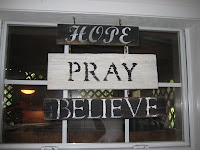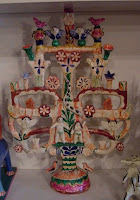
When a female friend up in Dallas used to the term CHL with me in a recent conversation, I understood what she was talking about only because of the context of her remark. What had begun as a suggestion from me that she needs to upgrade her Internet access from dialup to high speed segued into an explanation from her about decision making in a marriage. Oh well, maybe you had to be there. I shouldn’t have been surprised to learn that this well-coifed lady from Dallas would carry a handgun. After all, she grew up in the likes of Abilene, and for Pete’s sake, this is Texas. I know at least one other woman who is handy with a gun. No well-coifed lady from Dallas is she. She definitely wears the pants in her oddly conceived marriage.
Guns? For me, no thanks. When my daddy died in 1981, Mother gave me his guns, if I wanted them. It was a gesture of pure considerateness. She knew I didn’t use guns. I in turn gave them to my nephews, keeping only a police pistol that I remember being in their bedroom chest of drawers all my growing up life, hidden under the underwear and socks, and never loaded, as far as I know. I had no interest in finding out. Guns frightened me. And they do to this now government official senior time in my life.
I had a Red Ryder BB gun growing up. And it was this gun that I used to kill the redbird when I was 11. Standing in the front yard on West Montgomery Road. I can see it in my mind’s eye, and as I consider all of the beautiful Northern Cardinals that consider my native garden here in rural Leon County one of their homes, I to this day don’t know why I would aim that BB gun at any living thing. Only one other remorseful redbird story lives in my memory, and it tops mine for sentiment. Someone I knew in Austin back the 70s, an equally tender hearted guy, had a tale of redbird massacre that takes the prize. He, too, shot a bird as a kid, and then realizing that its mate was nearby and utterly distraught over the slaughter of its partner, he eliminated the second bird and its suffering. I am no longer around this guy, but I wonder if he ever thinks about this tale he related 30 some odd years ago. The story has much greater literary potential than my tale of senseless killing from a child with idle time on his hands, from a child that doesn’t yet understand the preciousness of life. BW’s tale probably explains his love of The Opera and why he related to me that he couldn’t imagine life without Maria Callas.
Right now, I have an old Daisy gun leaning against the wall between two cupboards in the bunkhouse. I came across it just the other day, having forgotten that it is loaded with BBs, ready for action as a warning to the neighborhood big dogs that use the garden paths of my fenced in area and just outside that fence as their personal potty. Actually, my sister Joan’s rat terrier, Sadie, is one of the culprits. The gun hasn’t seen much action, certainly not this year. I usually just seek out the round bladed shovel and throw the offending matter over the fence into the horse trap. Or, if it’s really not in the way, I leave it to disappear on its on schedule with the help of sun and rain.
I guess I am just at the mercy of the world, certainly if it comes to wielding a gun in self defense. I understand sport, sort of, and while I don’t want to kill that deer—and I love meat just about as much as the next guy—I don’t object to people who hunt, with guns or bows. And I guess I understand, sort of, rationally, people who want to protect themselves, with a handgun nearby. My friend in Dallas apparently went to school to learn how to use her gun. Yes, I’ve shot beer cans off the fence post with my nephews. I was not very good, but I had a good time with them. They were grown by then. And there is that rabbit that I shot from the tailgate of their pickup track, in the company of my friend David—two city boys visiting my family in the country west of Houston. Somehow I don’t feel much of anything about that rabbit. I don’t recall that anyone ate it. “Like rabbits,” goes an expression about sex. I don’t know a similar one for redbirds. I had a cat here for a while, who came here as a kitten. His job was rodent control. When he grew up, however, Smokey loved to kill birds. After about the third redbird carcass, I found Smokey a new home. Damn the rodents. I should have listened to the friend in Houston who, when I asked, “Should I get a cat—no cat fancier am I—or should I put out rat poison". “Put out poison,” he replied, laughing. No cat fancier was he. Yes, I realize, redbirds don’t eat rodent bait, discreetly concealed in the confines of my barn house. They just live colorfully and melodically in my garden. They are, after all, songbirds—“purdy-purdy-purdy”, they call to one another, inviting my mother and Aunt Edna to smile, repeating their song.
The Innocence of Redbirds—Normangee, TX (September 29, 2008)
R. Harold Hollis






